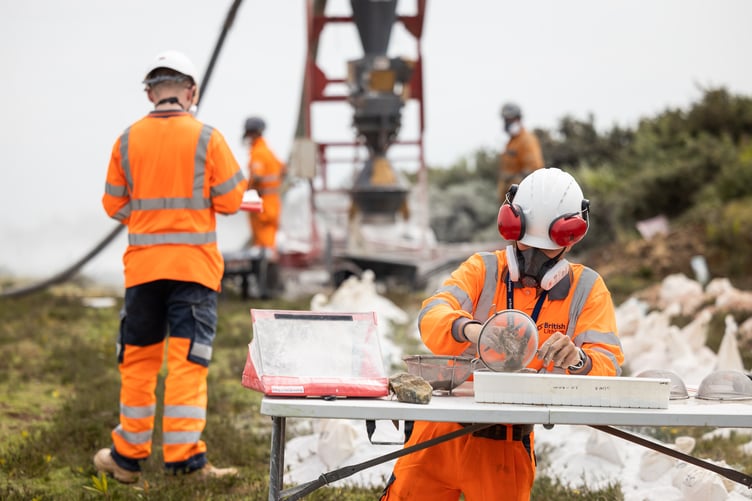A joint venture has been established that will see Cornwall become the UK’s leading lithium hub with the first commercial production of battery-grade lithium carbonate – a key component in electric car manufacturing.
Clay country giant Imerys and Roche-based British Lithium have teamed up in a deal that will benefit from the former’s existing mining footprint and the latter’s bespoke technology and state-of-the-art pilot plant.
Its target production of 20,000 tonnes of lithium carbonate equivalent annually will be enough to equip 500,000 electric cars by the end of the decade - approximately two-thirds of Britain's estimated battery demand.
British Lithium is a private company that has developed a processing route to produce battery-grade lithium carbonate from Cornish granite. Since 2017, it has carried out drilling and exploration on Imerys-owned land in Cornwall.
Under the new arrangement, Imerys will have an 80% stake in British Lithium and, togetherwith its French lithium project, will provide more than 20% of the European integrated lithium production capacity.
The proposed development will include a quarry, a beneficiation plant and a conversion unit co-located on an Imerys brownfield site to produce high-purity lithium. With a life of mineexceeding 30 years, it is anticipated the project will create at least 300 direct and several hundred indirect jobs.
Imerys CEO Alessandro Dazza said: “This acquisition is a milestone in Imerys’ journey to becoming a key partner in the energy transition. We look forward to unlocking the jointpotential of British Lithium and Imerys to make Cornwall a successful lithium hub, building on its centuries-old mining heritage.”
British Lithium chairman Roderick Smith said: “After working closely with Imerys for several years, the directors, shareholders and staff of British Lithium are delighted to formalise their partnership with Imerys and are confident that this alignment of interests will propel us toward continued rapid progress. This marks a key milestone for British Lithium, Imerys, and the entire lithium battery industry, as they embark on a journey to establish a sustainable future for lithium production in the UK.”
The transaction has been approved by the government under the National SecurityInvestment Act protocol. It will reduce the UK’s and Europe’s dependence on critical raw materials imports, thus contributing to the achievement of climate change targets.
St Austell MP Steve Double said: “Mineral mining is in our DNA in this part of Cornwall. The potential of lithium extraction is a huge boost that will ensure that we will continue to lead the world in this sector for many years to come. We have been producing some of the highest quality china clay for many generations and now we can look to a future where we supply what will be one of the most sought-after natural resources into the future.
“I am so proud that Cornwall is getting to lead the way once again in producing high-quality lithium that will be essential for the future production of electric vehicles in the UK. This is a great day for everyone involved and for Cornwall as a whole - well done to everyone who has worked to make this possible."
The Cornwall and Isles of Scilly Local Enterprise Partnership (LEP) welcomed the announcement. Earlier last week, the LEP launched its own campaign promoting investment opportunities in Cornwall's natural resources - The Power of Cornwall, featuring a video from broadcaster and journalist Simon Reeve.
LEP Chief Executive Glenn Caplin-Grey said: "We congratulate Imerys and British Lithium on this landmark deal which is a turning point in the sustainable extraction of critical minerals in Cornwall.
"This is a huge step forward in Cornwall's ambitions to underpin a UK-based lithium battery industry and highlights Cornwall's crucial role in the domestic supply of critical minerals essential to the energy transition.
"It reinforces why harnessing the power of Cornwall is essential to the UK's journey to net zero, not just in the production of lithium and other minerals like tin and tungsten, but also floating wind power from the Celtic Sea, deep geothermal energy and biofuels derived from agriculture.”





Comments
This article has no comments yet. Be the first to leave a comment.